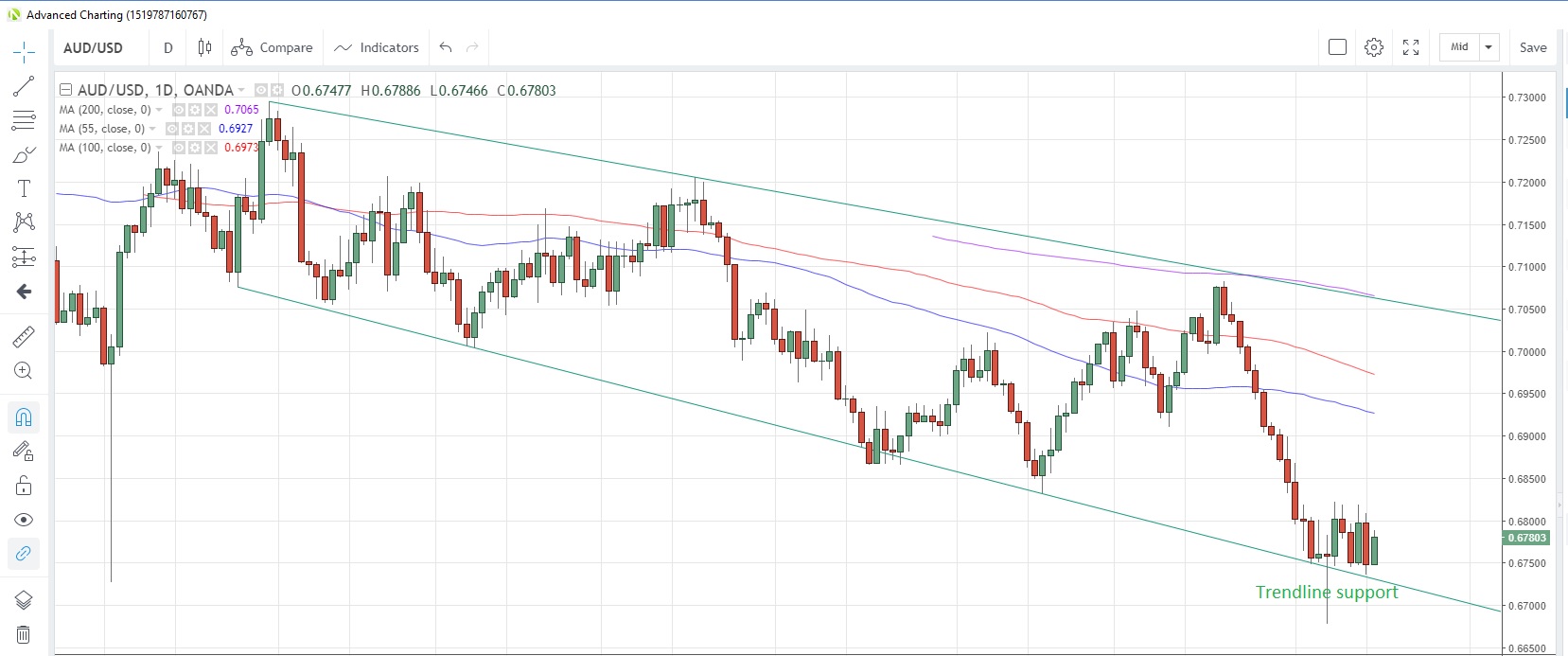Strong full-time jobs
The Australian dollar jumped across the board after July’s employment report came in better than forecast. The Australian economy added a net 41,100 jobs last month, more than the 14,000 economists had expected and almost matching the 42,300 jobs added in May. The details also suggested a robust report, with 34,500 of the jobs coming from the full-time category while 6,700 were from part-timers. The unemployment rate held steady at 5.2%, as expected.
The strong report capped interest rate markets, with the 3-year yield rising one basis point, as possible further RBA easing bets were scaled back. Interest rate markets are now assigning a 22% probability of a rate cut at the September meeting, down from 44% yesterday.
The better-than-expected data saw AUD/USD jump to 0.6789, a 0.6% gain on the day, while AUD/JPY rose to 79.31. AUD/USD is now at 0.6780 and has been trading within the confines of 0.6740 and 0.6810 for the past week with minor trendline support around the 0.6730 level today.
AUD/USD Daily Chart

Inflation expectations rise
Adding additional upward pressure on Australian rates was the release of August consumer inflation expectations. Expectations rose to 3.5%, up from 3.2% in July and the highest reading in four months. These readings are expectations of future inflation over the next 12 months and the survey is conducted by the Melbourne Institute. The readings appear slightly contrary to the RBA’s own thoughts and may not have such a lasting impact.
US yields at record low
The demand for US Treasuries as a safe-haven asset continues unabated, with the 30-year yield dropping below the 2% for the first time ever in Asian trading. The 30-year yield had closed at 2.03% last night. Reuters noted that, despite US 30-year yields at record lows, they are still higher than elsewhere, with the Japan JGB yield at 0.155% and the German yield at -0.2%.
Yesterday, in a premature release of an interview scheduled for today, former Fed Chair Janet Yellen commented that it was “most likely the US is not entering a recession, but risks have risen”. This when the US yield curve inverted for the first time in 12 years.
Retail sales day
The European data calendar features UK retail sales for July, with estimates suggesting 0.2% contraction following the strong 1.0% increase in June. There are no major data releases scheduled from either Germany of the Euro-zone today.
The US session sees the release of US retail sales for July as well. They are expected to grow 0.3% m/m, a mild slowdown from June’s 0.4% gain. The NY State Empire manufacturing index is expected to dip to 3.0 from 4.3 while the Philadelphia Fed manufacturing survey is seen dropping to 10.0 from 21.8. The rest of the data slate includes industrial production for July, +0.2% from a flat reading the previous month, and capacity utilization, dipping to 77.8 from 77.9%.
